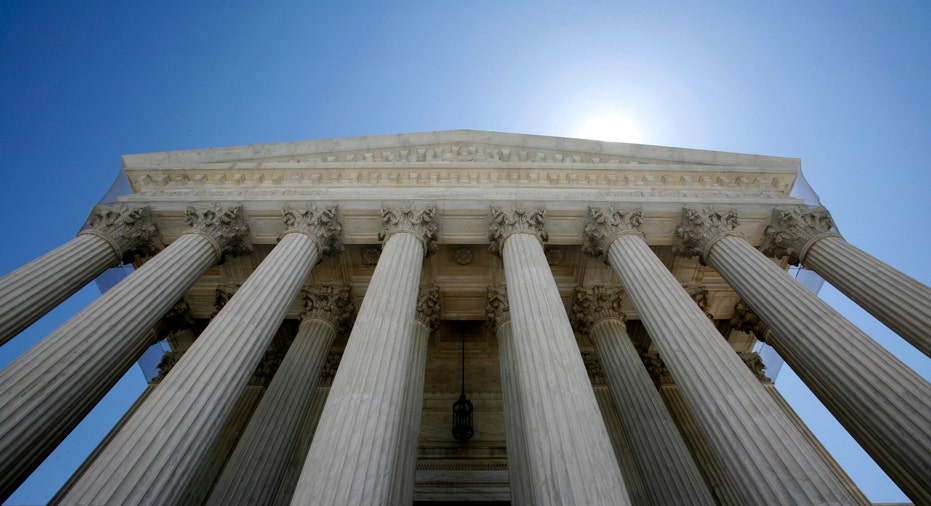Supreme Court Begins New Term Amid Critical Uncertainty

It is business as usual for the Supreme Court justices despite the irresolution of the vacancy left by the untimely death of conservative-leaning Justice Antonin Scalia earlier this year.
On Monday the U.S. Supreme Court declined to hear an appeal by the Washington Redskins in which the NFL team was challenging the decision to cancel the team’s trademarks after critics deemed it offensive to Native Americans.
While the justices continue to hear other cases, the opening on the bench represents a very significant political uncertainty. One consequence of the outcome of the November elections could resonate for centuries beyond 2016. Next year either Hillary Clinton or Donald Trump will have the power to appoint the ninth Justice on highest federal court in the country.
Scalia’s death has left the court with eight sitting justices, ideologically split four-and-four. President Obama nominated chief judge of the United States Court of Appeals for the District of Columbia Circuit, Merrick Garland, to fill the vacancy more than six months ago. And for an appointment by a Democratic President, Garland is about as centrist as they come.
“He is a moderate in many senses,” Ilya Shapiro senior fellow in constitutional studies at the Cato Institute tells FOXBusiness.com. “He’s a very well respected jurist. No opinion that he’s written on the DC Circuit has even been taken up by the Supreme Court, let alone reversed.”
Still, with Republicans in control of the Senate, they had the power to refuse to vote on Garland, biding their time in hopes the Republican nominee, Donald Trump, secures the presidency. Now the decision could be left up to the next Commander-in-Chief, the person who will be the product of the most contested election in recent history.
And that, Shapiro says, makes this scenario exceptionally significant.
“It’s unprecedented. The last time a vacancy arose during an election year and was confirmed by a Senate of the opposite party to the President was in 1888. Compounding that, this is essentially the swing vote on so many issues and the direction of the court could firm significantly… so this is certainly a pivotal seat.”
Trump has released a list of potential nominees, saying he would appoint someone similar to Justice Scalia, who was “pro-life” and “conservative.”
“It’s a fantastic list. Whoever he’s listening to on this is giving him good advice,” Shapiro says.
However, the pending nomination has the potential to tilt the ideological balance of the court to the Left for the first time in more than 40 years.
“Since 1971… there have always been 5 sometimes as many as 8 justices who were appointed by Republican presidents,” Erwin Chemerinsky, dean of the Law School at the University of California Irvine, tells FOXBusiness.com. “Today there are four appointed by Republican presidents and four appointed by Democratic presidents.”
And if the Democrats have their way, they could end up appointing someone younger, and more liberal than Garland; which means a whole host of issues could be significantly altered in the coming years. Everything from abortion, to campaign finance reform, to the second amendment, to the death penalty is quite literally hanging in the balance.
Furthermore, Chemerinsky believes the next President may have the chance to shape the bench beyond simply filling the seat of Justice Antonin Scalia.
“Since 1960, 78 years old is the average age of a Supreme Court Justice who has left the bench. There are three justices that are 78 or older. I think especially if the next President serves two terms, it appears likely that 3 maybe 4 seats could go on the Supreme Court.”
As far as the upcoming term, Shapiro notes it will be “low-key” when compared with recent terms, which have been laden with high-profile cases.
With that said, there are quite a few cases of interest already lining the docket regarding race, redistricting and intellectual property.
Both Shapiro and Chemerinsky agree that one case that will likely turn heads this year is a trademark case for an Asian-American rock group called “The Slants.” The case deals with whether a disparaging name can be trademarked.
Chemerinsky is also co-counsel for the City of Miami in two financial cases, Bank of America v. City of Miami and Wells Fargo v. City of Miami. The court will decide whether allegations are sufficient to allow a city to sue banks for predatory lending in violation of the Fair Housing Act.
“What the Supreme Court does affects all of us, often in the most important and intimate aspects of our lives,” Chemerinsky reminds us. And whoever the next President is will have a rare chance to meaningfully influence the moral compass of this country.



















